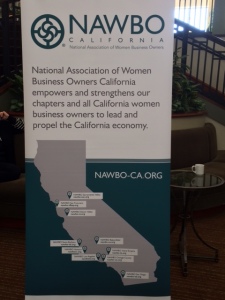Is Moving the Answer to High CA Taxes? Beware!

As any business owner knows, taxes in California can be high. But should you relocate your company to another state? We get this question a lot, and there’s a two-part answer: It depends, and make sure you do it correctly.
Whether or not you move is dependent on your business’ specifics: credits and incentives you’re eligible for, if you can run your company effectively somewhere else, etc. Relocating your organization is a big ordeal; it takes much more than opening a PO Box in the neighboring state. It means picking up and moving your entire life.Read more
Focus on Utah
This month, we decided to put our focus on the Beehive State! Utah leads the way as one of the best states for business and economic development. One reason the state is ideal for business is due to tax incentives for companies that create jobs. In addition, cost of living and doing business are 10% below the national average. The state also has the 10th lowest tax burden in the country; the corporate tax rate has not risen in 15 years!
Business Climate
Utah is very pro-business, and companies benefit from the state having the third lowest energy costs in the nation. Over the last few years, the state has become a technology hub, adding locations for companies such as EBay, Oracle, Microsoft, Twitter, and Adobe. It has been said that the talent pool in Utah is very good with the availability of software engineers and Mormon missionaries with foreign language skills. Since their expansion into Utah last year, Oracle alone has added more than 300 jobs. Financial services are another targeted area for Utah. Goldman Sachs has 1,700 employees in Salt Lake and expects significant growth in the next two to four years.
Taxes
According to the Tax Foundation’s 2015 State Business Tax Climate Index, Utah ranked favorably at 9th out of 50. Utah's corporate income tax system consists of a flat rate of 5%. That rate ranks 12th lowest among states levying a corporate income tax. Utah's state and local corporate income tax collections per person were $91 in 2012 which ranked 14th lowest nationally.
Utah's personal income tax is also a flat rate of 5%. That rate ranks 20th lowest among states levying an individual income tax. Utah's state and local income tax collections per person were $870 in 2012 which ranked 22nd lowest nationally. Utah levies a 5.95% general sales or use tax on consumers, which is the same as the national median of 5.95%.Read more
Tax Credits vs. Tax Incentives [How They Help]

Recently, Vox posted an article in which a research firm argued that tax breaks cause more harm than good, especially for small businesses. At Miles Consulting, however, we have a different take on tax credits and incentives.
For years, Miles Consulting has worked with a variety of clients (of varying sizes) to help them take advantage of tax credits and incentives. But before we can really get to the core of the issue here, we need to take a look at these two different types of benefits.
Tax Credits
To quickly summarize, tax credits are generally statutory, which means that a state or federal law, or corresponding regulation, details what type of company qualifies for a tax credit, how it’s calculated and how it can be utilized. Statutory tax credits by their nature tend to be objective. That is, if a company meets the qualifications, they can benefit from the credit. Note that some credits have annual maximums and there can be significant compliance involved in taking advantage of the benefits. The tax credits are generally reported on annual tax returns.Read more
A French Vacation is Just Like State Tax Consulting
 I just got back from an amazing vacation to France. Great, you say! And what in the world does that have to do with multi-state tax consulting? Well, it depends on how you look at it.
I just got back from an amazing vacation to France. Great, you say! And what in the world does that have to do with multi-state tax consulting? Well, it depends on how you look at it.
Here are some things I learned in France that might relate a little bit to state tax consulting:
- The laws of wine-making (and labelling) in France’s Burgundy wine region are every bit as complicat
 ed as dealing with state tax laws. In Burgundy, it is very important to know how to read a label. It will tell you whether the grapes come from the most prestigious areas (a “Grand Cru” or a “Premier Cru”), or simply from the Burgundy region or “Village”. Even within the villages, there are specific plots of vines that have specific names and must be labeled on the bottles accordingly. Two plots next to each other may produce very different wines. So, it’s important to sample many different ones to determine which one you like the best!
ed as dealing with state tax laws. In Burgundy, it is very important to know how to read a label. It will tell you whether the grapes come from the most prestigious areas (a “Grand Cru” or a “Premier Cru”), or simply from the Burgundy region or “Village”. Even within the villages, there are specific plots of vines that have specific names and must be labeled on the bottles accordingly. Two plots next to each other may produce very different wines. So, it’s important to sample many different ones to determine which one you like the best! - In France, there are still many chateaux (castles) dotting the landscape. Some are very large and stand high on hills as the main landmark of a little town. And some are smaller and within the villages themselves, not as ostentatious, but often still operating as people’s homes (or converted to hotels or B&Bs). We stayed in a lovely chateau like that for a few nights. And it had a moat! The whole concept of a moat (and staying in a castle with a moat) made me smile each time I went outside. Back here in the real world, we deal with states offering tax credits and incentives. And I couldn’t help but wonder, would states like California be happier if we could just build a moat around our state to keep others out (and our companies in)?
- Monet’s garden at Giverny, with its water lilies, famous bridges and weeping willow trees was like stepping out of (or into) a painting. To be able to witness Monet’s water lily paintings in the Musee d’Orsay and the L’Orangerie and then also witness the actual garden that inspired thos
 e works was amazing. Art and poetry in motion. Do you suppose anyone out there ever thinks, “Wow, I read a state tax statute one day and applied it to a client situation the next day and it’s true poetry in motion.” Of course they do!
e works was amazing. Art and poetry in motion. Do you suppose anyone out there ever thinks, “Wow, I read a state tax statute one day and applied it to a client situation the next day and it’s true poetry in motion.” Of course they do!
OK, I admit it! I still have a little bit of vacation-brain. And the examples above are huge stretches to try to convince anyone that my trip to France had ANYTHING to do with multi-state tax consulting. However, probably the most important thing that I did learn about my business while on vacation was that it’s OK to go on vacation. We all know that it’s important to get away and “sharpen the saw” on occasion, but we tend to forget that, so it’s good to be reminded. I have a great team of people that kept the lights on, took care of clients, and fielded phone calls and solicitors in my absence. You know that feeling you get when you know you’ve got it handled? I truly did. And it enabled me to experience amazing things that I don’t see every day. And, perhaps notwithstanding that stretch on the above items, it has truly enabled me to come back sharper and ready to put those state tax statutes back to work for my clients. Bonjour! It’s a new day!
The California Competes Tax Credit Program [Update]

What’s new with the California Competes Tax Credit program? As we explained several months ago, the program had three different application periods for the 2014-15 fiscal year:
- September 29, 2014, through October 27, 2014 ($45 million available)
- January 5, 2015, through February 2, 2015 ($75 million available)
- March 09, 2015, through April 6, 2015 ($31.1 million available plus any unallocated amounts from the previous application periods)
Now that all three application periods have passed and we wait for the State’s office of economic development, Go-Biz, to release data for the upcoming fiscal year, we thought this would be a good time to look at the program and provide a quick update. As we previously explained, “The program was implemented to offer California-based businesses an income tax credit if they’re looking to expand, or for non-California organizations looking to relocate to the Golden State.”Read more
Partnering for Client Success Stories
 As a consultant in a very specialized field, people ask me all the time – “How do you get new clients?” The truth is, much of my work comes from referrals from other professionals, like fellow CPAs, bookkeepers, temp-CFOs, and attorneys. Those professionals are the ones in the trenches and they are the ones that will be able to identify situations where their clients are beginning to expand into other states, hire employees outside their home state, or hold inventory or other property in various states. They, like us, are trusted business advisors, looking to add value to their clients’ businesses and are uniquely positioned to identify scenarios where our services can assist their clients.
As a consultant in a very specialized field, people ask me all the time – “How do you get new clients?” The truth is, much of my work comes from referrals from other professionals, like fellow CPAs, bookkeepers, temp-CFOs, and attorneys. Those professionals are the ones in the trenches and they are the ones that will be able to identify situations where their clients are beginning to expand into other states, hire employees outside their home state, or hold inventory or other property in various states. They, like us, are trusted business advisors, looking to add value to their clients’ businesses and are uniquely positioned to identify scenarios where our services can assist their clients.
But we need to be able to help them to know when it makes sense to bring us to the table!
Following are a few questions that we recommend other professionals keep in mind as they assist their clients with financial and legal matters across state lines. To the extent any are strong YES answers, it might be a good time to check in with us at Miles Consulting Group.Read more
A New CA Sales Tax Solution? The Upward Mobility Act

It’s no secret that California’s sales tax system isn’t working. The state currently generates two-thirds of its revenue from income taxes; 65 years ago only 12% came from income taxes and 60% was generated by sales taxes.
About The Upward Mobility Act
Former Assembly Speaker Bob Hertzberg, now a member of the state senate, proposed what he calls the Upward Mobility Act, which focuses on:
- Expanding CA sales taxes to include more services
- Lowering the state’s base rate from 7.5% to 4%
- Getting rid of local add-on taxes
He claims this would, “Generate billions of extra dollars that he says the state could use to fund schools, local government and the university systems while providing tax credits to protect the poor.” He also says this would encourage entrepreneurs by reducing corporate tax burdens on small businesses.Read more
Focus on Illinois
 Named after French explorers, “Illinois” is the French spelling of the Illinois and Peoria Indian word “iliniwok,” meaning men or warriors. Illinois is known as the “Land of Lincoln” or The “Prairie State.” The state had two capitols (Kaskaskia and Vandalia) before Springfield was the chosen capital in 1837 by state legislators under the leadership of Abraham Lincoln. In this week’s blog we focus on the Midwest state of Illinois.
Named after French explorers, “Illinois” is the French spelling of the Illinois and Peoria Indian word “iliniwok,” meaning men or warriors. Illinois is known as the “Land of Lincoln” or The “Prairie State.” The state had two capitols (Kaskaskia and Vandalia) before Springfield was the chosen capital in 1837 by state legislators under the leadership of Abraham Lincoln. In this week’s blog we focus on the Midwest state of Illinois.
Business Climate
Illinois is the fifth largest state in the nation with approximately 12.8 million residents. The strength of the economy in the state is based on professional and business services, education, healthcare, leisure and hospitality services. While the state’s manufacturing industry has declined over the years, it is consistent with national trends. The largest private employers in Illinois are major retailers, large healthcare providers, equipment manufacturers, and nationwide financial service providers. According to the U.S. Bureau of Labor Statistics, Illinois averaged 5.813 million nonfarm payroll jobs and an unemployment rate of 8.4% in fiscal year 2014.Read more
OpenBazaar - A New Wrinkle for Internet Sales Tax Collection?

As we have regularly reported, it’s clear the issue of collecting sales tax from Internet sales is long from resolved. As new versions of the Marketplace Fairness Act surface in Congress to address the issue of sales/use taxes that go largely uncollected, other marketplaces are starting to come to light, such as OpenBazaar, “A completely decentralized online marketplace that links individual buyers and sellers without an organized middleman (think Amazon, but without the intermediary of, well, Amazon).” Not only is Congress not yet ready to deal with our current Internet transactions, but if this kind of marketplace model takes off, they’ll really be scratching their heads!
By using Bitcoins as opposed to a country’s specific currency, OpenBazaar users are able to buy and sell internationally without the government being involved at all. In fact, the program isn’t run by an organization at all; it’s completely open-source, although it’s still in beta.Read more
"Girl Power"
What does  “Girl Power” have to do with state tax consulting? Well, nothing actually. But every now and then (since this is my blog) I feel that I have the liberty to wax poetic about something that isn’t directly related to my industry. My “girl power” DOES have something to do with being a business owner for 13 years, so I’m comfortable that still have the business angle covered!
“Girl Power” have to do with state tax consulting? Well, nothing actually. But every now and then (since this is my blog) I feel that I have the liberty to wax poetic about something that isn’t directly related to my industry. My “girl power” DOES have something to do with being a business owner for 13 years, so I’m comfortable that still have the business angle covered!
I’ve been thinking about gender issues a fair amount lately – maybe more so than usual. I’ve grown up in life and in business where women have been easily half of the workforce. In public accounting, at the staff levels, it seems that women even outnumber the men. But we’ve all read the statistics that still less than 20% of partners in large public accounting firms, CFOs in private industry and CEOs of Fortune 500 companies are women. And while it’s reality – it’s a reality that is still frustrating!
So, why has this bubbled up for me recently? It seems that in the last month or so I’ve tripped over things in the world that still make me shake my head. Here are some examples:
- In Silicon Valley during the months of March & April, we were riveted to the news almost daily watching the Ellen Pao trial related to the lawsuit against her former employer Kleiner Perkins. Kleiner Perkins is the grand-daddy of venture capital firms in the Valley. And Ms. Pao sued the firm for discrimination when she didn’t make partner with the firm. Whether she had a good case or not, or whether it was “win-able” are all items for continued speculation. She didn’t win. But the case aired the dirty laundry of the firm and got the Valley talking about gender equity issues. During the trial, there was testimony about bad behavior and lewd comments by some of her male counterparts. It got me thinking – is there a woman out there who HASN’T been in a situation where there’s been some inappropriate commentary among co-workers? It got me thinking about some of the stories I could tell, and do….occasionally.
- I attended a California conference of NAWBO – the National Association of Women Business Owners last month in Sacramento. We helped to represent the over 1 million women owned businesses in our state alone. It was so empowering to see the women in that room banding together and sharing the issues that are unique to not only entrepreneurship, but also to women owned business. During the conference, we celebrated the association’s 40 year anniversary, and were reminded that our first national President, Susan Hager, founded NAWBO because she couldn’t join the chamber of commerce as a woman business owner. Susan said, “Get a seat at the table or build your own table, and make sure to include other women at that table.” Wow! Thank you to her for getting us our own table. We were also reminded that NAWBO was instrumental in the passage of HR 5050 – the Women’s Business Ownership Act of 1988, which was key in women gaining access to capital. Before the passage of this law, lenders could legally deny a woman access to capital without a male co-signer on a loan. IN 1988!!
- It’s 2015, and women are STILL earning just 78 cents (or less) to the dollar that their male counterparts are earning for the same jobs. Once again….it’s 2015. Why is this still happening? It’s important that we still talk about it and make strides toward closing the gap.
- I presented a webinar on April 30th (Sales Tax Hot Topics for CPAs) http://www.cpaacademy.org/archived_show/a0DC000000dfNBiMAM . It’s a presentation that is always well received and I get a lot of great feedback. This time, one of the attendees sent me a message about the energy in my presentation and my “girl power”. People always tell me I have good energy, but it’s been a while since someone has told me that I have girl power. It gave me a boost. Nevermind that I know my subject matter – I came through with power! And I like that!
In summary, these recent events remind me to be grateful to those pioneering women who laid the groundwork for women entrepreneurs today. And with all respect to my many amazing male colleagues, ladies – let’s not be afraid to flex a bit of girl power now and then!




















